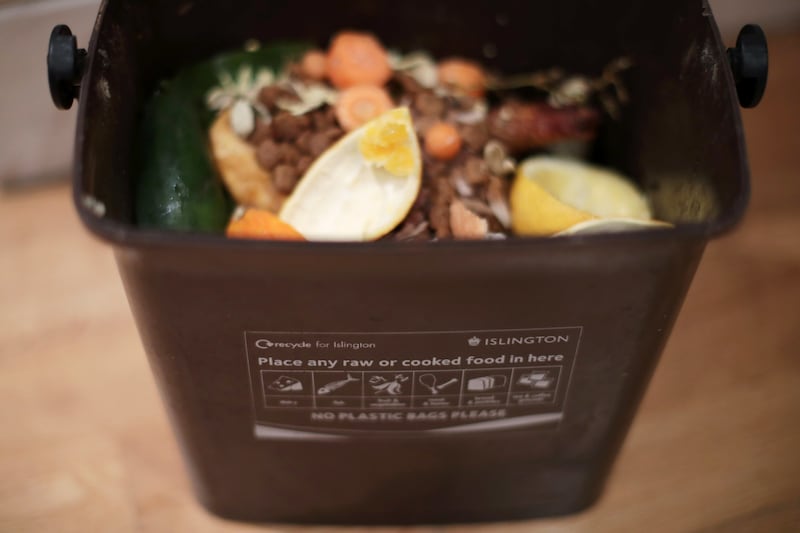Councils in England are to receive up to £295 million to support them to introduce weekly food waste collections, the Government has announced.
New funding will cover the provision of food waste caddies for homes and specialist collection vehicles and will be targeted at local authorities that have yet to put collections in place.
Officials said more than 10 million tonnes of food is wasted every year in the UK, much of which is sent to landfill.
Separate collections could prevent contamination of rubbish that can be recycled, while the leftover food could be used to generate sustainable energy from anaerobic digestion, as well as cut down on greenhouse gas emissions that rotting food generates.
Introducing weekly food waste collections across the country is part of the Government’s plan to standardise rubbish and recycling in England, so everyone can recycle the same materials instead of different systems in different council areas.
Weekly collections of food waste are being rolled out for most households across England by March 2026.
Recycling minister Robbie Moore said: “Weekly food waste collections are a central plank in delivering a simpler, easier recycling system for all.
“It will help to stop food waste heading to landfill and support our goals of tackling both waste and climate change.
“We’re backing councils with new funding to ensure the nation can benefit and recycle more.”
Claire Shrewsbury, from waste reduction body Wrap, said: “Weekly food waste collections will give recycling in England an important boost and help reduce the impact of food waste on climate change.
“Our research shows that when food waste collections are introduced, and people see how much food goes to waste in their home, they want to do something about it.
“And with food waste costing a household of four around £1,000 a year, weekly collections will not only help prevent food waste in the first place, but utilise the food waste collected to generate green energy and compost.”








